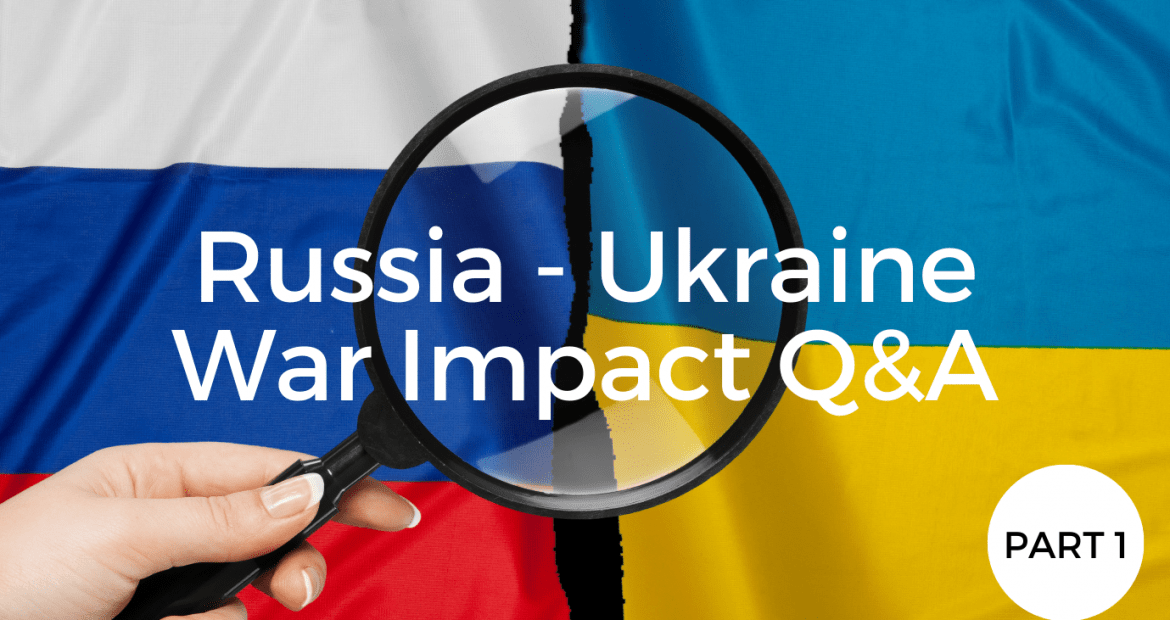By Opus Asset Management Sdn Bhd
- Will the ongoing Russian-Ukraine conflict have any financial impact on Malaysian banks?
In terms of operational footprint, Malaysian banks are geographically limited to the South-East Asian region with Western exposure only via corporate banking services for the United Kingdom (UK) and the United States (US). Furthermore, the balance sheets for Malaysian banks as of end-Dec’21 reveal almost zero exposure of their loan books to Central/Eastern Europe or Russia.
- Given the widespread scale of the ongoing conflict, what are the implications for Russia’s financial reserves?
The immediate response from the Western nations when the conflict started was to target Russia’s economy and financial infrastructure via sanctions. Notably, almost 50% of Russian central bank assets held overseas were frozen, while Russian banks which are implicit to funding the Russia-Ukraine conflict have also been disconnected from SWIFT. Without sufficient reserves, the Russian central bank was unable to defend the Ruble in the open market leading to a sharp drop in its value. The freezing of central bank assets also has the implication whereby Russia would be unable to pay its sovereign debt since it has restricted access to foreign currency. This high risk of default has led international rating agencies such as Fitch to slash Russia’s sovereign rating into junk territory. However, we do note that Russia’s energy-related transactions are, as of writing, untouched which would limit the financial instability arising from the Western economic sanctions.
- Since Russia’s financial infrastructure has been affected, will this risk affect the global banking system?
Risk from exposure to Russia of the major global banks stands at less than 5% of loans, as shown in Exhibit 1. As such, the impact is expected to be manageable. Over the longer term, financial institutions (FI) with exposure to Russia will have to face the prospect of scaling down their operations or exit Russia altogether, due to concerns over business viability and geopolitical pressures. In a worst-case scenario, financial institutions may have to write off their losses due to the capital controls being imposed by the Russian central bank, as well as contend with the prospect of having their Russian assets seized. Unsurprisingly, European banks will be the most affected as they are among the FIs with the largest exposure to Russia as shown in Exhibit 1.
Exhibit 1: Selection of banks with loans exposure to Russia
| Bank | Origin | Exposure | % of loan exposure |
| Citigroup | US | USD 10 bil | 1.5% |
| Goldman Sachs | US | USD 650 mil | 0.4% |
| Raiffesien Bank International | Austria | EUR 5.7 bil | 4.9% |
| Societe Generale | France | EUR 18 bil | 1.7% |
| UniCredit | Italy | EUR 14.2 bil | 1.5% |
| Intesa Sanpaolo | Italy | EUR 5.6 bil | 1.1% |
| ING | Netherlands | EUR 5.1 bil | 0.9% |
| Deutsche Bank | Germany | EUR 2.9 bil | 0.6% |
| Credit Suisse | Switzerland | CHF 1.6 bil | 0.5% |
Source: The Edge, Reuters, Opus Asset Management
Despite so, we derive comfort from the fact that international banks are owed roughly USD121 bil by Russia-linked entities (according to the Bank of International Settlements), which means exposure is relatively small at 0.38% of the aggregate global banking system size of USD32.1 trn.
- Beyond just manageable financial losses for FIs exposed to Russia, is there possibility where a situation similar to the Long-Term Capital Management (LTCM) case can develop?
Previously in August 1998, when Russia defaulted on its debt, LTCM, a hedge fund, was holding a large position in Russian government bonds and the flawed algorithm back then led to the continued holding of the bonds. On top of the flawed strategy, LTCM was highly leveraged which led to the collapse of the fund. While not exactly on the scale of LTCM, foreign holdings of Russian assets totaled roughly USD170bil and there have been recent examples in the asset management space where BlackRock was forced to recognize a 90% loss of USD17bil on its Russian equities, although this amount is manageable compared to the massive $9.5 trn that BlackRock manages. Of course, we do not rule out the possibility of smaller funds facing severe risks from Russia’s exposure, but we believe governments and supranational organizations would stand ready to support institutions that pose a systemic risk, as was the case for LTCM. Elsewhere, the ensuing volatility has led to liquidity concerns for commodity traders, with nickel miner Tsingshan Holding Group Co (Tsingshan) particularly affected. Its short position on nickel of over 150,000 tons was subject to multiple margin calls as nickel prices jumped 250% on the back of the Russia-Ukraine war, with the liquidity crunch peaking as Tsingshan owed JPMorgan almost USD1bil in margin before trading was halted. While the London Metal Exchange (LME) and the involved banks did manage to resolve the margin problem (via rolling back the day’s trades and further credit guarantees) for now, we note that the Russia-Ukraine war may continue to cause liquidity problems especially in other commodities or leveraged bets which have yet to surface. In Malaysia’s case, investment mandates are usually limited to investment grade securities focused on the local markets and Asian regional markets with risk averse investors, and based on our channel checks, we do not detect risks of Russia and the broader Central and Eastern European space transmitting to the Malaysian financial markets.
Disclaimer
The information, analysis and opinions expressed herein are for general information only and are not intended to provide specific advice or recommendations for any individual entity. Individual investors should contact their own licensed financial professional advisor to determine the most appropriate investment options. This material contains the opinions of the manager, based on assumptions or market conditions and such opinions are subject to change without notice. This material has been distributed for informational purposes only and should not be considered as investment advice or a recommendation of any particular security, strategy or investment product. Information provided herein may include data or opinion that has been obtained from, or is based on, sources believed to be reliable, but is not guaranteed as to the accuracy or completeness of the information. No part of this material may be reproduced in any form, or referred to in any other publication, without express written permission. Opus Asset Management Sdn Bhd and its employees accept no liability whatsoever with respect to the use of this material or its contents.





